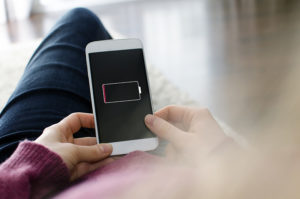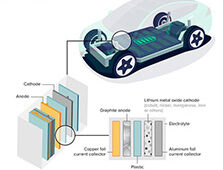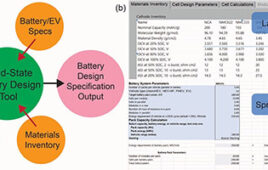By Chris Adam, Purdue Research Foundation

New technology from Purdue University innovators aims to improve battery life.
If you want power, you lose battery life. If you want battery life, you lose power.
That’s the situation facing users of most electronic devices – and it’s also the dilemma for electronics manufacturers. Purdue University innovators have come up with an invention to help.
“Battery life technology, for the most part, has not been able to keep up with the other technology that requires the battery,” said Saeed Mohammadi, a professor of electrical and computer engineering in Purdue’s College of Engineering. “Complementary metal-oxide semiconductor [CMOS] is a battery-powered semiconductor chip inside computers and devices that stores information. CMOS requires a lot of power from the computer which, in turn, reduces the battery life.”
The Purdue researchers developed a new, custom logic family that can be used to reduce the power needed by the CMOS. This new technology can run with a power supply down to near-threshold or sub-threshold levels. This will reduce the energy used by the CMOS.
John Lynch, who developed the technology as a graduate research assistant in Mohammadi’s lab, said, “I saw a need for a way to reduce the power required by the CMOS, which is technology used in nearly all electronics. Our invention offers more efficient options than the current technology, and it reduces the power needed for the CMOS. This is particularly important as the world uses more electronic devices that are processing large amounts of data.”
The innovators worked with the Purdue Research Foundation Office of Technology Commercialization to patent the technology.
The innovators are looking for partners to continue developing and commercializing their technology. For more information on licensing and other opportunities, contact Matt Halladay of OTC at [email protected] and mention track code 2017-MOHA-67766.





Tell Us What You Think!